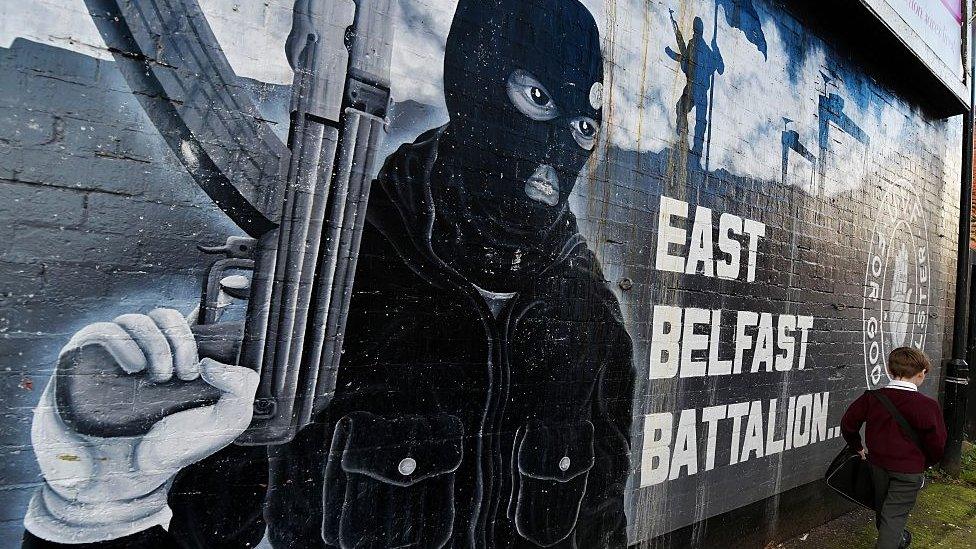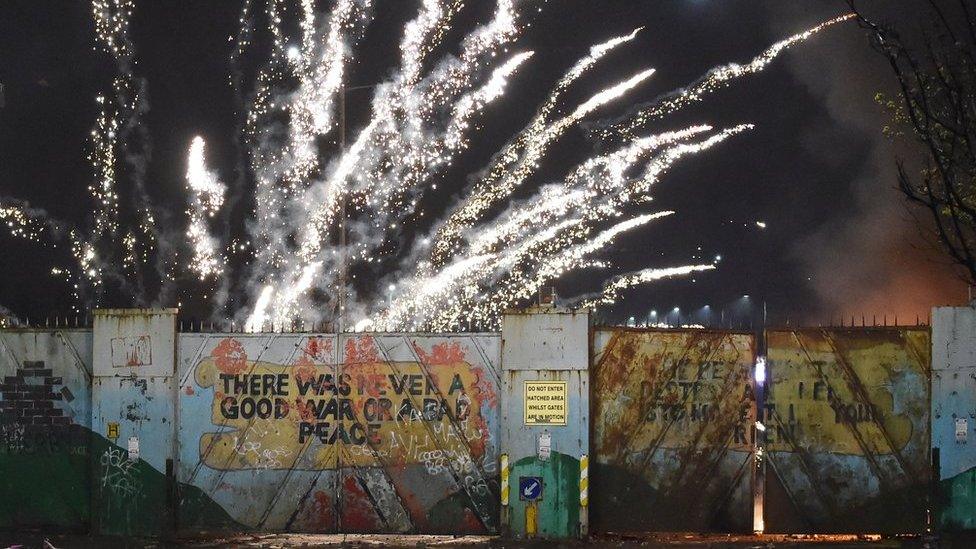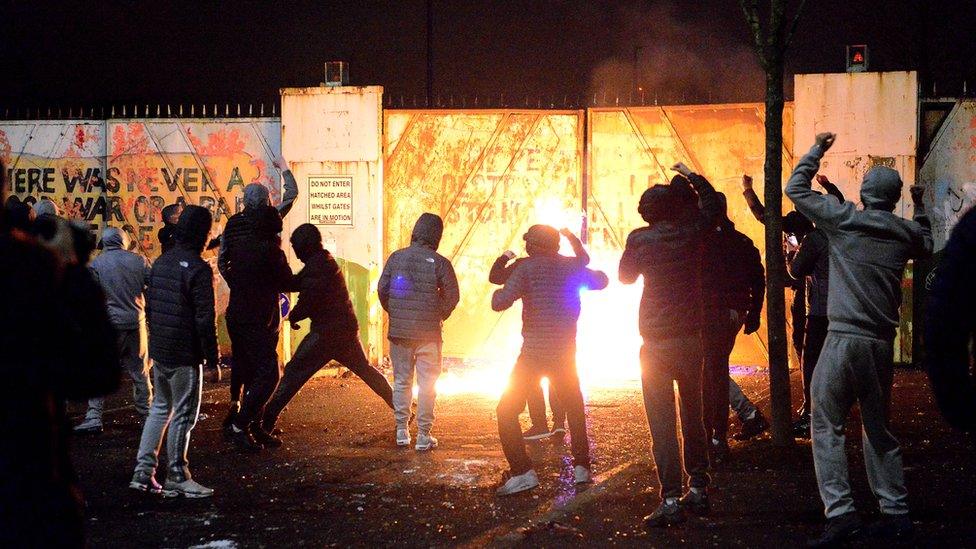Paramilitaries remain 'clear and present danger' in Northern Ireland
- Published

2021 has seen a worrying return of street disorder, says the report
Paramilitaries remain "a clear and present danger" in Northern Ireland, a report on their activities has found.
Street disorder linked to Brexit has led to speculation about a resurgence of activity, says the Independent Reporting Commission (IRC) report.
The report calls for a new body to be set up to talk to illegal groups and bring about their disbandment.
The IRC was established by the British and Irish governments in 2017.
Its remit does not involve providing detailed "status assessments" of the various paramilitary groups.
Its job is to report annually on overall efforts to tackle paramilitarism.
Escalation concerns
The latest report notes that 2021 saw "a worrying return of some street disorder", which has been linked to loyalist opposition to Irish Sea border arrangements as part of the Northern Ireland Protocol.
It states there were reports this involved some individual paramilitaries "supporting and encouraging young people in violent behaviour".
But the IRC adds there were others who played a constructive role in discouraging trouble.
It calls for the establishment of a new body to help "group transition" towards the goal of all paramilitary organisations disbanding.
This, it suggests, should involve talks with the leaders of illegal groups.

Police came under attack in riots in Belfast in April
"Some believe that a process of engagement to bring about group transition is no longer appropriate or feasible, and that disbandment is a matter purely for the police and justice systems," says the report.
"Our analysis leads us to a different view.
"We recall that the peace process required a decision to engage directly with those previously involved in campaigns of violence.
"We believe that ending paramilitarism now will require a comparable process of engagement with those directly involved."
The IRC believes the British and Irish governments should establish the new body, in consultation with the Northern Ireland Executive.
There should be various milestones to mark the transition journey, it says, including ending recruitment and stopping assaults and shootings linked to controlling areas.
"Events this year have shown how problematic the continuation of paramilitarism is for society," concludes the report.
"Our concern is that the situation will deteriorate further if action of the kind we describe is not taken now."
There are four IRC commissioners: Solicitor John McBurney and former human rights commissioner and Women's Coalition leader Monica McWilliams were nominated by the Northern Ireland Executive.
Former Irish civil servant Tim O'Connor was nominated by the government of Ireland, and the former US Special Envoy Mitchell Reiss was nominated by the UK government.
Related topics
- Published12 April 2021

- Published14 April 2021
